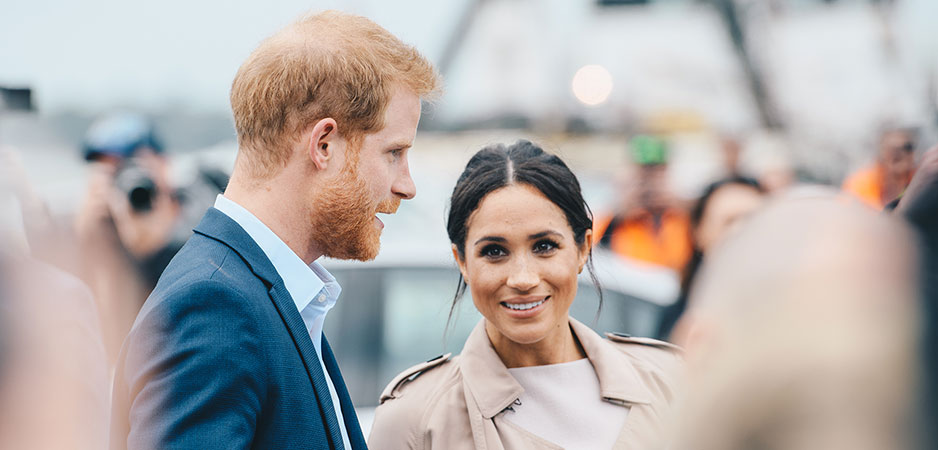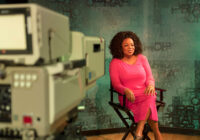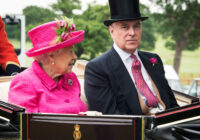“We all know what the British press can be like and it was destroying my mental health,” Prince Harry said in a recent interview for “The Late Late Show With James Corden.” Was he kidding? Destroying his mental health? How exactly? By expressing opinions on his behavior? Or deciding whether he has acted selflessly or not? Or speculating on his motives for relocating to California? Harry just keeps providing new raw material. Even in his most meaningless moments, he can offer an off-the-cuff remark that contrives to evoke the sympathy of some and the outrage of others.
I imagine anyone who has a loved one or a friend who has suffered (I use this verb carefully) with serious mental illness, such as schizophrenia, major depression or other functional impairments, will be upset by Harry’s cavalier description of his response to the media attention he and his wife Meghan habitually receive.
Are the Windsors the New Kardashians?
When the duke and duchess of Sussex grumble about their lack of privacy and condemn the media for the moral decay they appear to symbolize, they should ask whether they are having to pay for the audacity of trying to disguise their own moral decay with a flagrantly cosmetic show of trying to live a private life. This is a couple that has designed its own mission to escape a life of unlimited privilege and comfort — but with a modicum of public duties to fulfill — in order to pursue a life of extravagant luxury and incalculable wealth. These things come at a price, and here it is this: People will pronounce judgment on you. That’s it.
Playing the Villains
Of course, in order to do so, people need evidence. And that’s where the media come in. They act as the public’s proxy: They represent us, acting on our behalf, have our authority to invade your privacy, probe your personal life and investigate your affairs, even in a hostile or critical way. The Sussexes want to stay in our minds. So they need a media they have recently called “toxic” like they need antiperspirants — useful but often containing aluminum (a toxin).
A little over three years ago, when they announced their engagement, Prince Harry and Meghan Markle pulled ahead of George and Amal Clooney and Barack and Michelle Obama in the best-loved couples’ stakes. Now, they’re only just edging Fred and Rosemary West. Their anemic ubiquity isn’t their own fault, of course. They can’t help it if the media chronicle their exploits thoroughly. All the same, they might try a little harder not to play the villains quite so perfectly.
The barely believable timing of the upcoming interview with Oprah Winfrey only days after Meghan won her privacy case against the Mail on Sunday could not have been dreamt up. A woman who cares so fervently about her private life and was prepared to go to court to defend it, promises to discuss marriage, motherhood, life as a royal and how she is handling “intense public pressure” in front of several million TV viewers. Even if the audience falls short of those 90 million worldwide who watched Oprah’s interview with Michael Jackson in 1993, it will still be colossal. (In the UK alone, nearly 23 million watched Martin Bashir’s 1995 interview with Diana, princess of Wales, Harry’s mother, of course.) This is exactly why we are all drawn to the couple. They invite us to be judge and jury, and there’s something quite satisfying about judging others. “Disgraceful! Shame on you! Good for you!” We applaud people we like, deplore those we dislike, and sometimes just feel indignant. We take our reward from all types of pronouncement. This is why Harry and Meghan have become so satisfying.
Filling a Vacancy
Viewers will watch partly to learn, partly to amuse themselves and partly to adjudicate. I am not convinced Harry fully understands this, but I suspect Meghan is canny enough to have grasped the full implications of Sunday’s interview. Meghan was brought up in Woodland Hills, California, about a half-hour’s drive away from Beverly Hills, where Kim Kardashian was raised. While no one has suggested Meghan has aspirations to be the next KK, there is a vacancy. “Keeping Up With the Kardashians,” the hit TV show, has been canceled, and Kim is sorting out her divorce from Kanye West.
The next phase of her career will probably not require her to remain in the public purview. She is worth about $780 million, according to Forbes, and still only 40. Meghan is a year younger, but is a relatively fresh figure in the public imagination and could learn from her. I am not contemplating she will emulate the sex tape that shot Kim to notoriety in 2007, of course. Perish the thought. But consider: Kim Kardashian virtually handed audiences license to make evaluations of her behavior.
Meghan seems to intuitively understand what she has got into. The Oprah interview will not be a ferocious interrogation, but the doyenne of talk shows is no pushover and will want disclosure. Viewers will almost certainly be presented the chance to decide whether Meghan is right or wrong on a number of issues. She will reveal things that were hitherto unknown and force viewers to take a position. And all this will be rendered painless by the simple fact that the audience’s verdicts will have no consequences of note for the people involved. Meghan and Harry will unhook their mics, walk off set and congratulate each other on a job well done. They will have appeared, spoken and set a million tongues wagging. That’s what celebrities do.
And that’s show business, isn’t it? Meghan is from a showbiz background and, even if she is now a royal pariah, she’s still a duchess and will exploit every commercial possibility in the illustriousness conferred by this title. In particular, she probably prides herself on her ability to rile and divide. Many, it seems, regard her as vacuous, superficial, facile, insubstantial and ignorant — an apotheosis of style without content. Some think she is sly, conniving and Machiavellian. Others still consider her to be a sublime example of modern womanhood: self-confident, decisive, opinionated and purposeful; for this, they both respect and love her. In the eyes of this last group, she has been the making of Harry. We all admire the cheek and chic of how whatever she does gets done.
The trouble is, when no one especially cared about (or even knew) Meghan Markle, many have been invested in Prince Harry for more than three decades (he is 36). Some will probably cringe to see him expose himself in front of millions, probably at the behest of his wife. Others will draw on their reserves of resentment and blame him for his self-serving treachery in leaving British shores for a celebrity lifestyle in LA.
Neither of them is innocent, but then again, neither is Oprah, CBS, ITV nor the countless newspapers and magazines that have carried news of the couple. And don’t forget us — no one gets off scot-free. Blame is layered. Everyone who watches even snippets of the fateful interview, whether they love or loathe the couple, is implicated in perpetrating this narrative of two lavishly entitled lives striving to become even more lavishly entitled.
*[Ellis Cashmore is the author of “Kardashian Kulture.”]
The views expressed in this article are the author’s own and do not necessarily reflect Fair Observer’s editorial policy.
Support Fair Observer
We rely on your support for our independence, diversity and quality.
For more than 10 years, Fair Observer has been free, fair and independent. No billionaire owns us, no advertisers control us. We are a reader-supported nonprofit. Unlike many other publications, we keep our content free for readers regardless of where they live or whether they can afford to pay. We have no paywalls and no ads.
In the post-truth era of fake news, echo chambers and filter bubbles, we publish a plurality of perspectives from around the world. Anyone can publish with us, but everyone goes through a rigorous editorial process. So, you get fact-checked, well-reasoned content instead of noise.
We publish 2,500+ voices from 90+ countries. We also conduct education and training programs
on subjects ranging from digital media and journalism to writing and critical thinking. This
doesn’t come cheap. Servers, editors, trainers and web developers cost
money.
Please consider supporting us on a regular basis as a recurring donor or a
sustaining member.
Will you support FO’s journalism?
We rely on your support for our independence, diversity and quality.






